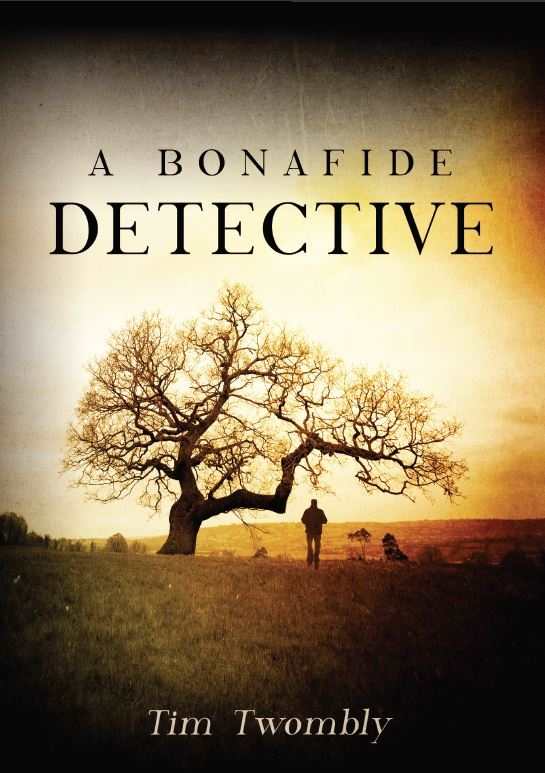A Bonafide Detective
This satisfyingly different book contains tons of twists and a folkloric, young-adult-driven plot.
Tim Twombly’s A Bonafide Detective is a fun, if head-spinning, escapist read. Dewey “Doc” Ruggles, who claims to be the great-grandson of Rudyard Kipling, and his best friend, Jimmy, witness the car crash that kills Jimmy’s sister. The driver responsible for the crash is never found. Doc thinks he has a new lead in the case, and the boys are quickly drawn into a complicated mystery as they try to bring peace to Jimmy’s family and adventure to their own adolescent lives.
The sophisticatedly crafted novel is set in early 1960s California, and cultural touchstones from jukebox hits to Doc’s “Arthur Miller glasses” abound, evoking a familiar setting, though the story thankfully eschews any mythology about how the period was a “simpler time.” From Junior, the sadistic bully, to Scarlett, the misandrist vixen neighbor, to the gruff and demeaning father who tells Doc when he’s eight that he’ll never be more than a little girl, this story is chock-full of complex and strongly written characters.
And then there are those who may or may not exist—Jimmy has a lupine alter ego that is either a magical realist element or a clever allegory for psychological disturbance: “There was too much coyote in Jimmy right now. It was hard for him to listen.” There’s a sexy nun who might be a ghost and a ghost in a pink dress who might be a missing woman, still alive. And there’s Margaret Ann, a true friend Doc does his best to pretend he despises, as well as his mentor and conscience, who shows up conveniently every time he’s in need of a reality check.
What’s real and what’s part of a teenager’s rich inner life or a plot point in Doc’s crime novel in progress? Twombly asks if it really matters what’s true, challenging readers in a fresh and mind-bending way. As Doc admits halfway through, “Funny thing is, that’s the one thing I’m kinda good at. I can make stuff up.”
Doc’s story weaving could be a way to cope with the untrustworthiness of the adults in his life. Neither priests nor parents are to be depended on: “Grill’s mother looked a lot like Janet Leigh in Psycho, but in color. She held a martini glass in her hand. Her breath smelled like butane. This was another tough house to grow up in.” The book maintains a cynical tone about its conniving, degrading adult characters throughout, and, in contrast, the kids—clearly just trying to stay afloat in a world that doesn’t make sense—are worth rooting for.
The relentless plot twists, constant introduction of new characters, and Doc’s melodramatic detective story vignettes can sometimes be overwhelming, and could lead to confusion. It may be a book that is better savored than devoured, in order to keep the details straight. But it’s a satisfyingly different book that is worth the work for fans of mystery, folkloric elements, and young-adult-driven stories.
Reviewed by
Sarah Stewart
Disclosure: This article is not an endorsement, but a review. The publisher of this book provided free copies of the book and paid a small fee to have their book reviewed by a professional reviewer. Foreword Reviews and Clarion Reviews make no guarantee that the publisher will receive a positive review. Foreword Magazine, Inc. is disclosing this in accordance with the Federal Trade Commission’s 16 CFR, Part 255.

